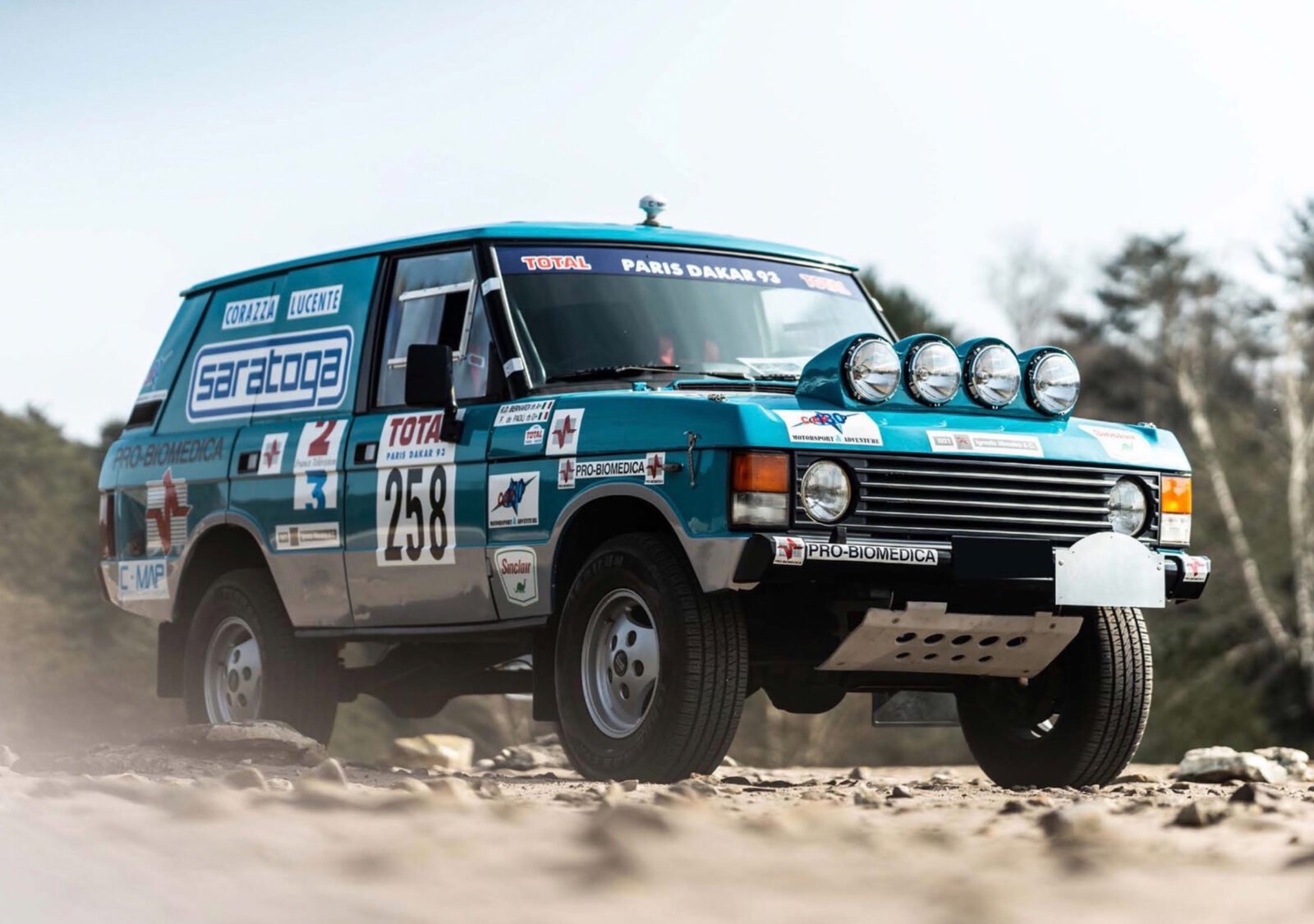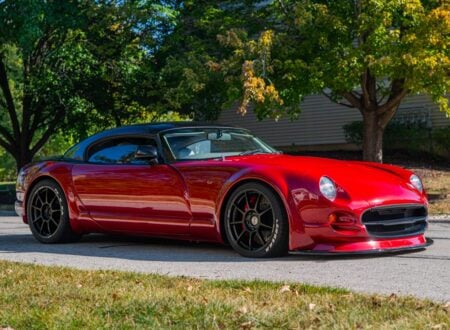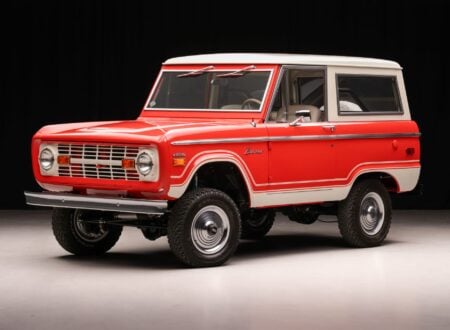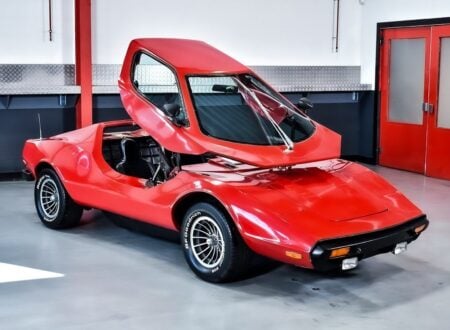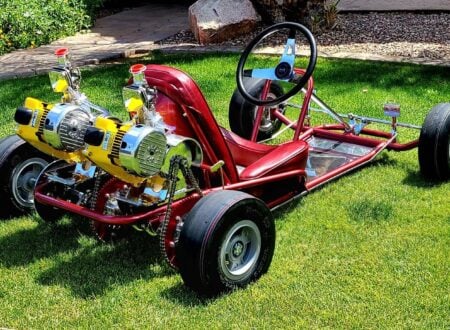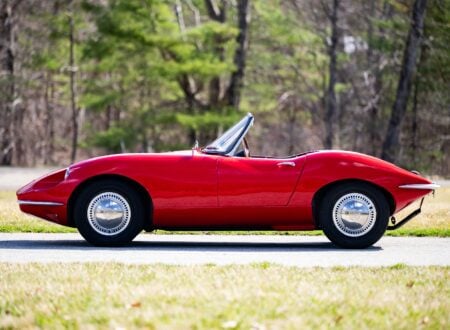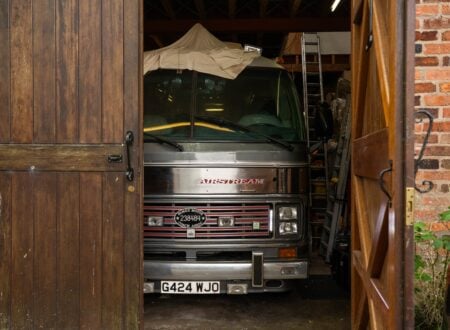This is a 1991 Range Rover that was bought and prepared for endurance rally competition by Italian gentleman racer Franco de Paoli, his original intention was to race it in the 1991 Paris-Moscow-Beijing Rally though sadly the event was cancelled.
Not one to sit idly by, Franco entered the Range Rover into the 1991 Pharaohs’ Rally in Egypt and promptly won the T2 class with it. It later competed in the 1993 Paris-Dakar Rally and it was an official media vehicle for the 1995 Paris-Dakar Rally.
Fast Facts – A Pharaohs’ Rally Veteran Range Rover
- Though it may seem unlikely given the nature of modern Range Rovers, back in the late 1970s and 1980s the V8 Range Rover Classic was already a Paris-Dakar Rally winner and a popular vehicle for conversion to rally raid specification.
- The first Range Rover entered production in 1969, it was developed as a highly-capable off-road vehicle that was also luxurious and easy to drive on the road. It quickly became a popular choice for cross-country adventurers.
- Now known as the Range Rover Classic, the vehicle was built on a steel box section chassis, with coil spring suspension, live axles, four wheel disc brakes, and a 3.5 liter Rover V8 sending power back through a 4-speed manual transmission and a dual-range transfer case.
- The Range Rover you see here is a 1991 model that was bought by well-known Italian gentleman racer Franco de Paoli who by then already had a long history of racing Range Rovers and Range Rover-based custom race vehicles in the Paris-Dakar Rally and other major rally road competitions.
The Rallye des Pharaons “Pharaohs’ Rally”
The Rallye des Pharaons, or Pharaohs’ Rally, is an iconic rally raid event that captured the imagination of rally enthusiasts around the world. It was first held in 1982 as a grueling 3,100 km (~1,900 mile) endurance race through the deserts of Egypt that tested the mettle of both the competitors and their machines.
Above Video: This clip contains footage of the 1991 Rallye des Pharaons, it’s not in English however it contains plenty of excellent racing footage and it gives a good idea of what the event must have been like.
The idea of the Rallye des Pharaons can be traced back to the early 1980s when renowned rally organizer and visionary French racer Jean-Claude Morellet conceived the event. He was inspired by the ancient land of Egypt and the challenges posed by its diverse and oftentimes brutal terrain. Morellet sought to create a race that would both celebrate Egypt’s long history and test the limits of off-road endurance racers.
The rally was first held in 1982, and it soon gained prominence as a major rally raid event within the international off-road community. Competitors from around the world would gather to take part in a race, navigating through vast arid plains, rocky terrain, and seemingly endless dunes of the Sahara Desert.
Competitors faced challenging conditions, including scorching heat, limited water supplies, and treacherous terrain, and mechanical malfunctions. To succeed, they had to not only withstand the harsh environment but also maintain their vehicles throughout the event, and repair them when the almost inevitable damage occurred.
Additionally, precise navigation was crucial to success, as getting lost in the desert could have dire consequences. Many teams relied on expert navigators to help guide them through the unforgiving landscape using maps, compasses, and the stars to find their way.
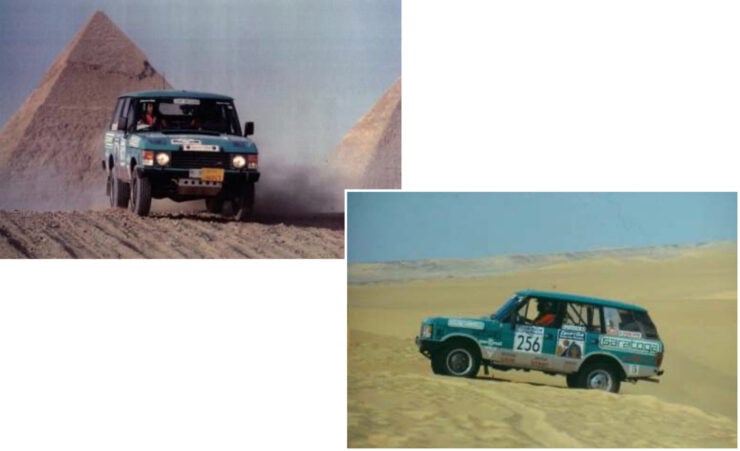

The final edition of the Rallye des Pharaons was held in 2015, concerns about regional stability and the safety of the competitors led to its cancellation, however there is hope that it will be able to run again once day soon.
The Rally Raid Range Rover Shown Here
This 1991 four-door Range Rover was bought off the showroom floor by Franco de Paoli and prepared by his specialist garage in Milan, Italy. As noted above, he had originally intended to race it in the 1991 Paris-Moscow-Beijing Rally, however the event never took place.
Not long after this the vehicle was entered into the 1991 Rallye des Pharaons “Pharaohs’ Rally” in Egypt and Franco won the T2 class finishing an impressive 12th overall. It would then have a two year hiatus before being entered into the 1993 Paris-Dakar Rally however it suffered a mechanical fault and didn’t finish the event.
It was then used once again in the 1995 Paris-Dakar Rally, though this time it would be a press/media vehicle used to follow the race in near-realtime and provide coverage for the global audience.
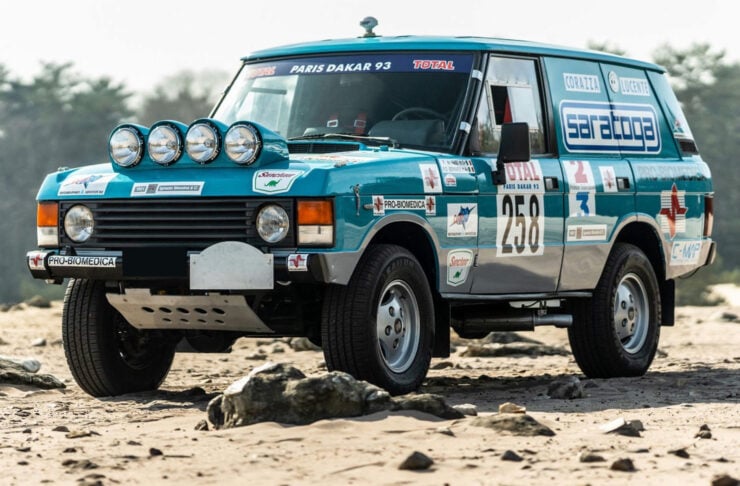

After this the Range Rover’s racing days were done, for the time being at least, and Franco de Paoli once again modified the vehicle, now for almost daily driving street use. In the years since it’s been returned to its specification from the 1993 Paris-Dakar Rally, and it would now make an excellent contender for the popular Dakar Classic class in the modern Dakar Rally.
The original Range Rover was a popular choice for rally raid competitors back in the 1970s and 1980s, particularly the V8 version (as opposed to the diesel that came along later).
Though it wasn’t as fast as a dedicated prototype racer, it did have strong live axles front and back on coil springs, a steel ladder type chassis, and a highly-tunable Rover V8 that could produce well over 300 bhp with some fettling.
In many endurance events its the toughest vehicles that often win, not necessarily the fastest, as was proven in the first ever Paris-Dakar Rally of 1979 when a Range Rover took victory in the car class piloted by the all-French team of Alain Génestier, Joseph Terbiaut, and Jean Lemordant.
If you’d like to read more about this unusual Range Rover you can visit the listing here. It’s due to roll across the auction block with Aguttes on the 2nd of April with a price guide of €60,000 – €80,000 or approximately $70,800 to $94,400 USD.
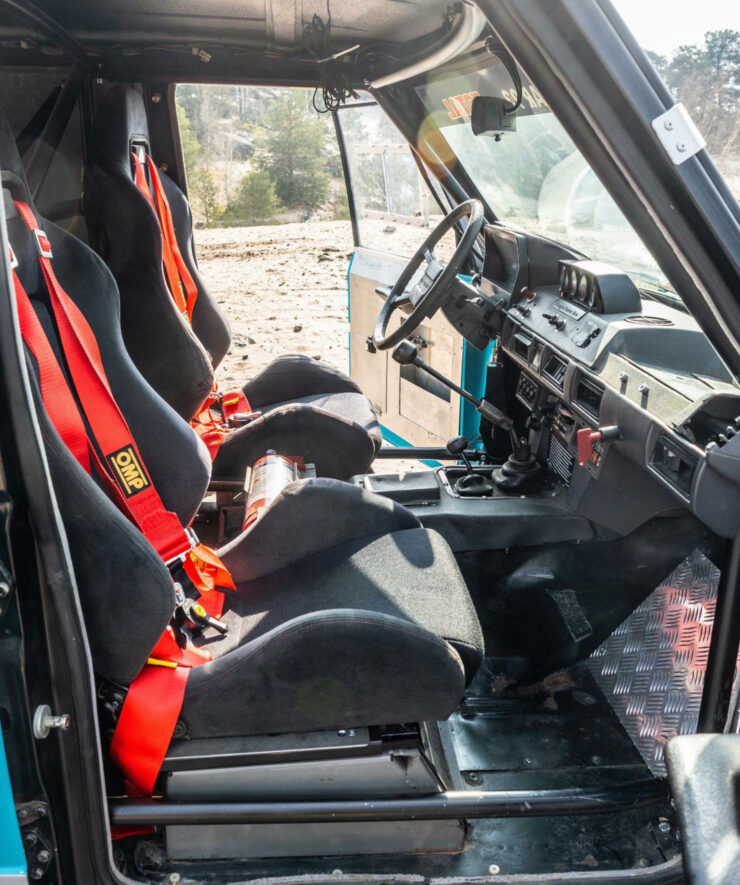
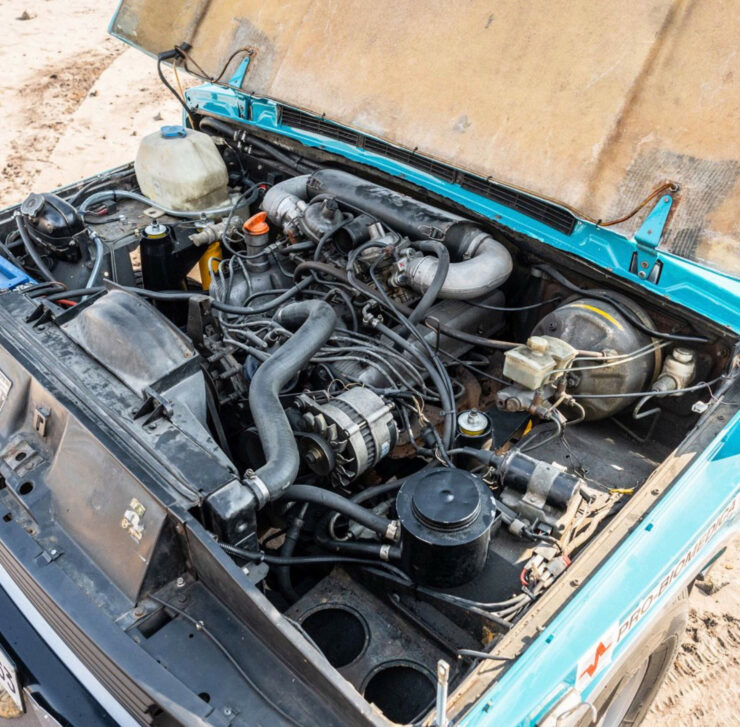
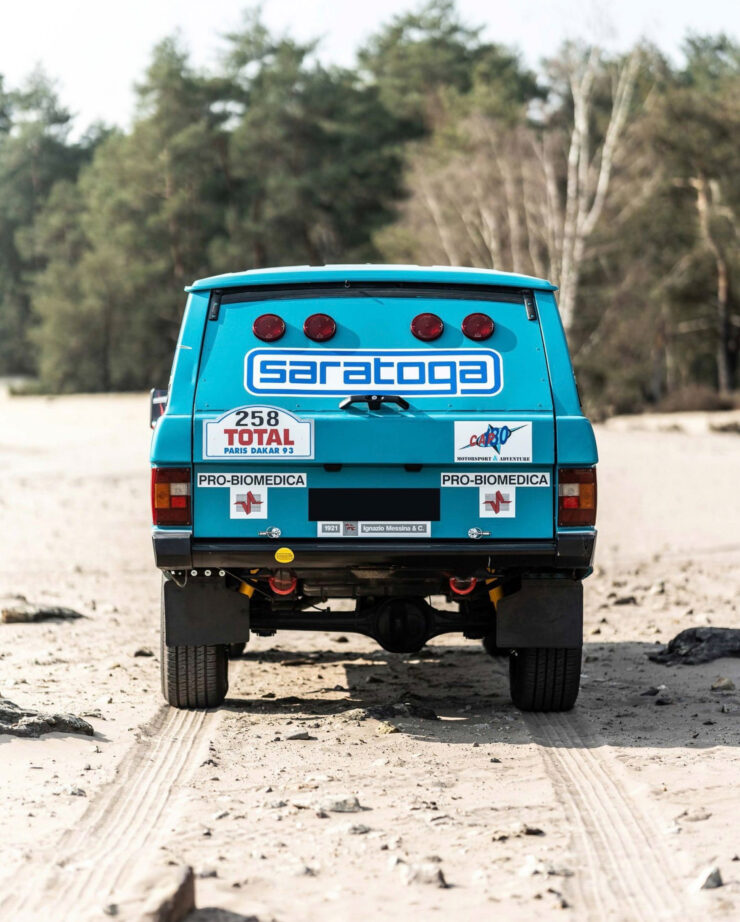
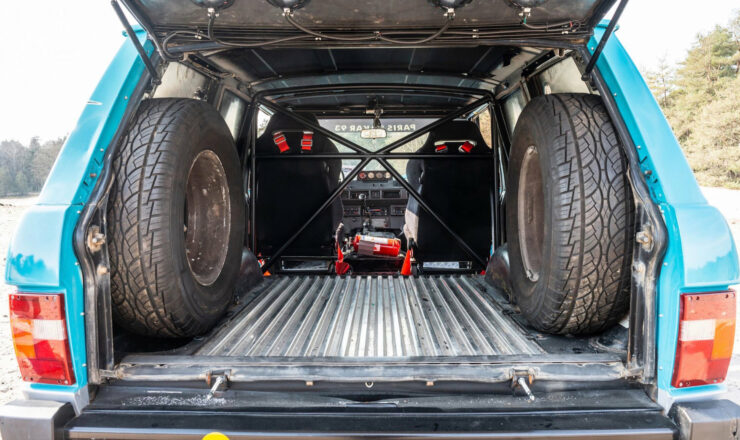
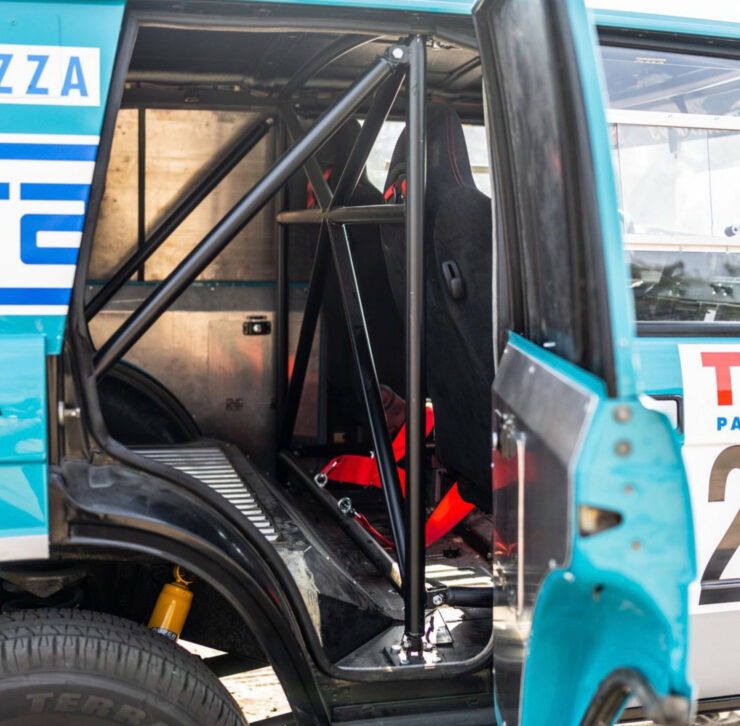
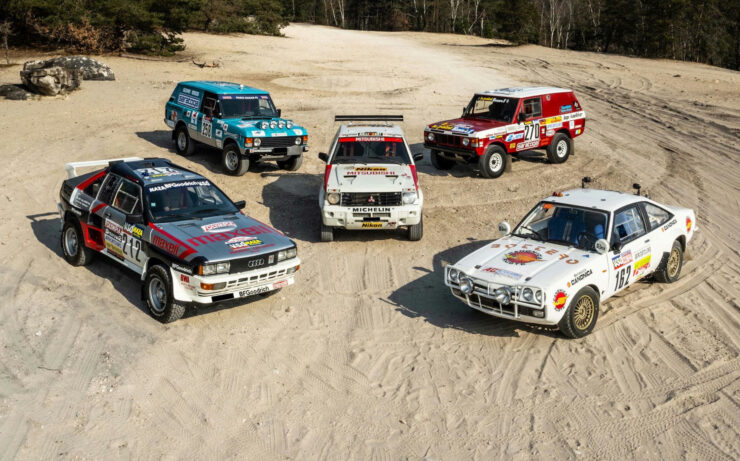
Images courtesy of Aguttes + Franco de Paoli

